Ndinguwe – “I am you”
“NDINGUWE – I am You” is a perception experiment that attempts to blur the boundaries between narrative and self-perception in virtual self-representation in the reality-virtuality continuum with the help of haptic feedback.
Can the bodily boundaries of self-consciousness be extended or even abolished by technical adaptations? Is our idea of our self changeable through the modified self-representation within VR (virtual reality) or MR (mixed reality)? Are there accesses to self-identifications that cannot be reached via pure imagination?
The experiment Ndinguwe (Xhosa: I am you) artistically investigates the effects of self-representation in virtual space, haptic feedback and mixed reality elements on narratology and the resulting cognitive effects. The experiment is evaluated for its efficacies using microphenomenology for artistic research.
Tobias Bieseke
Jan Schulten
Azziza El-Yabadri
Voices:
Sarah Quarshie
Ekkehard Freye
Adi Hrustemović

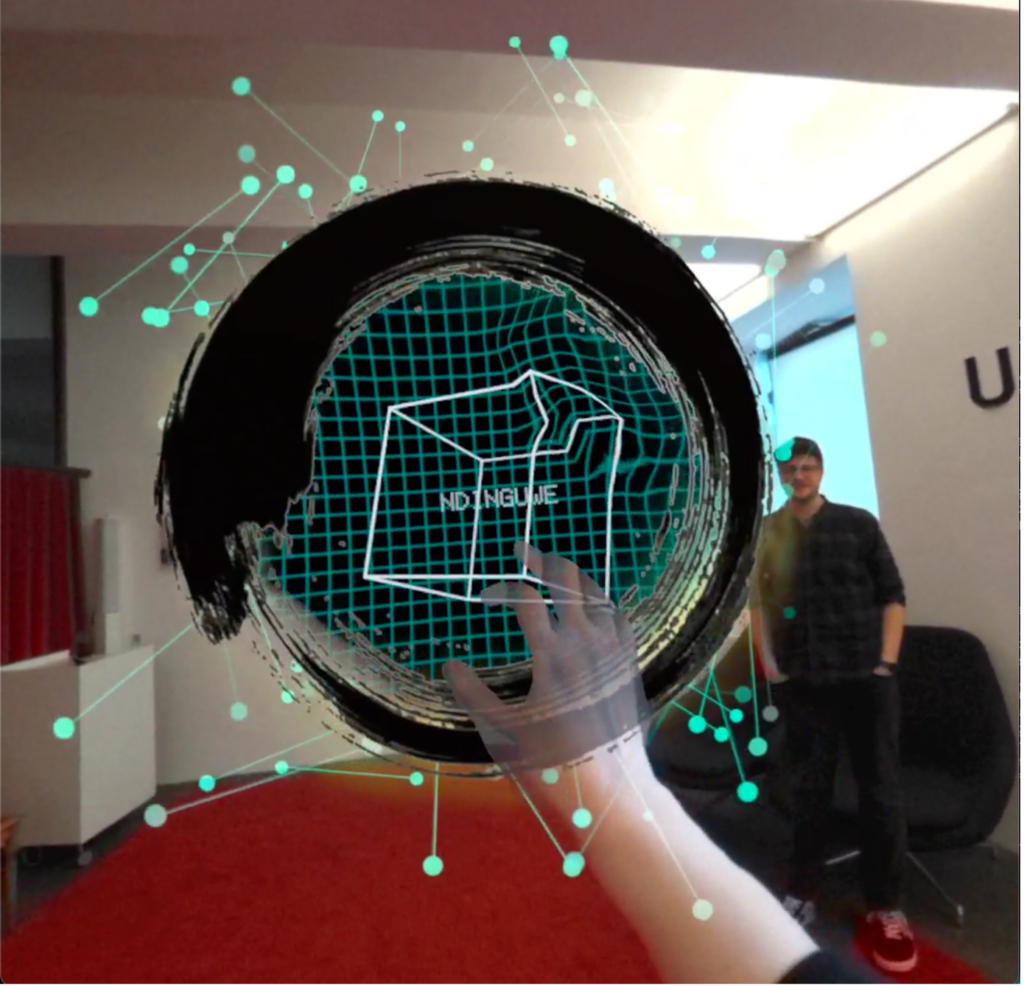
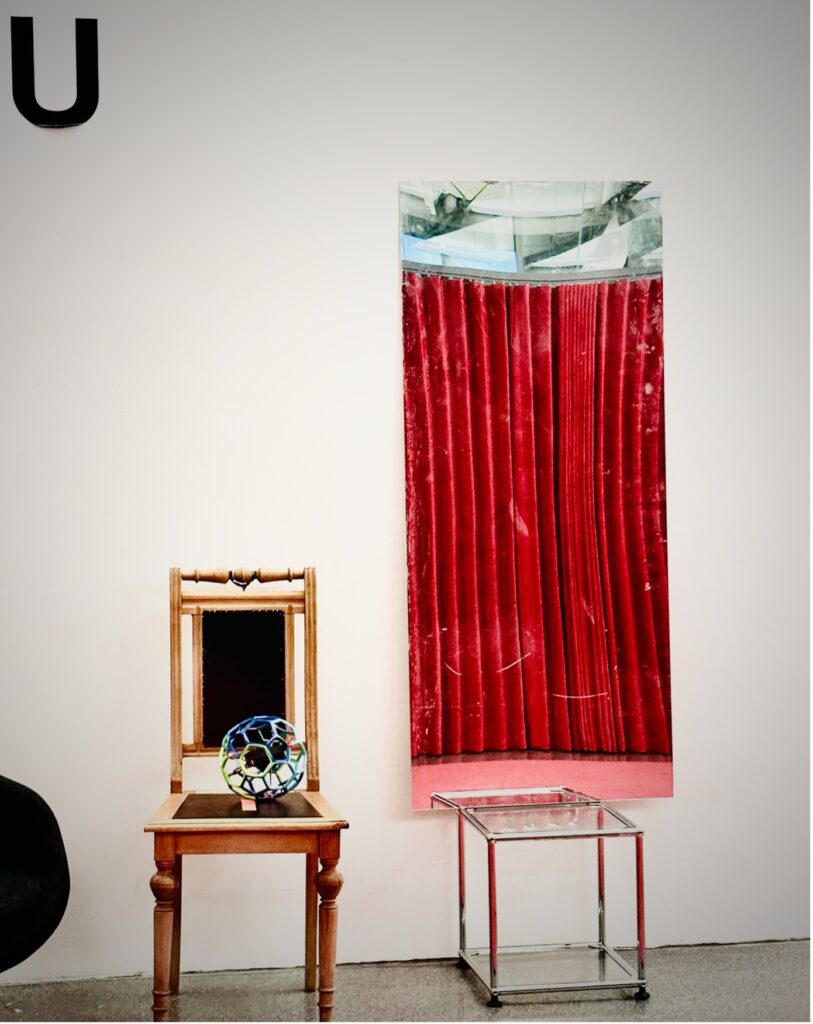
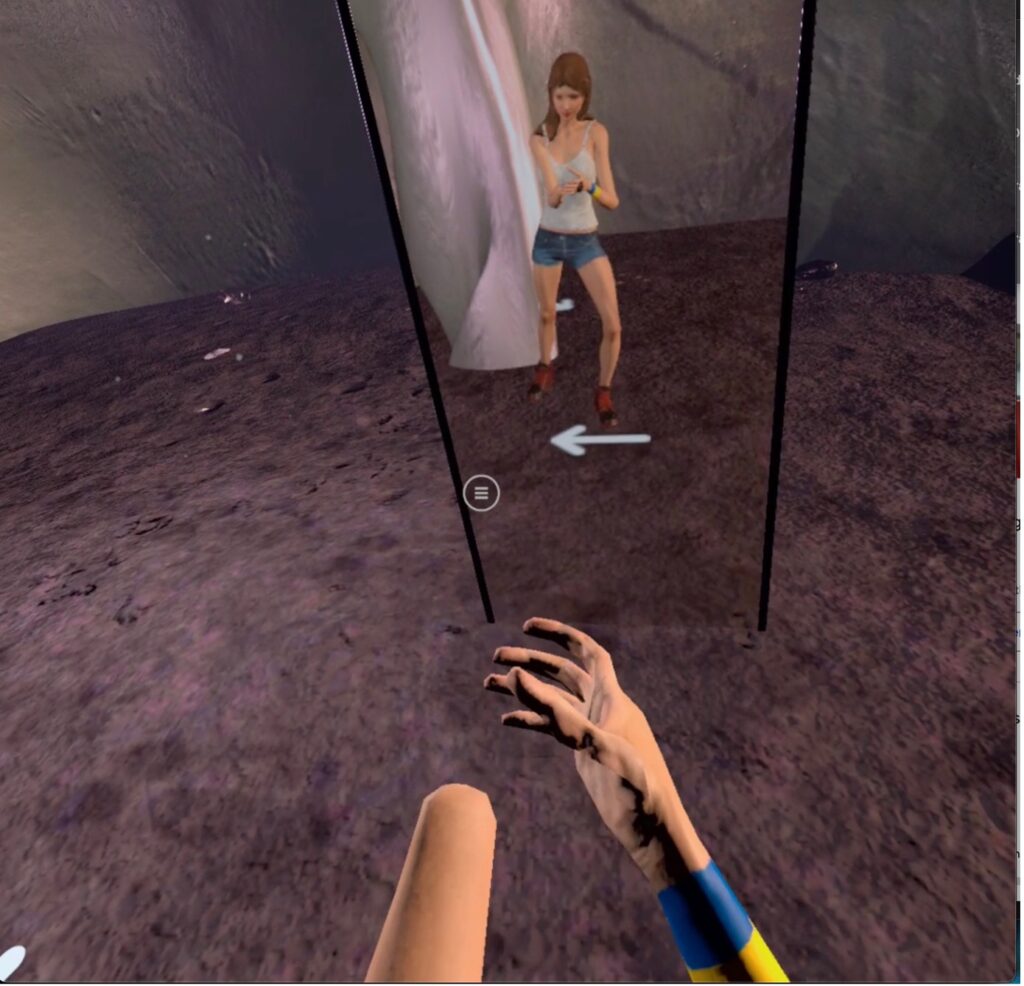
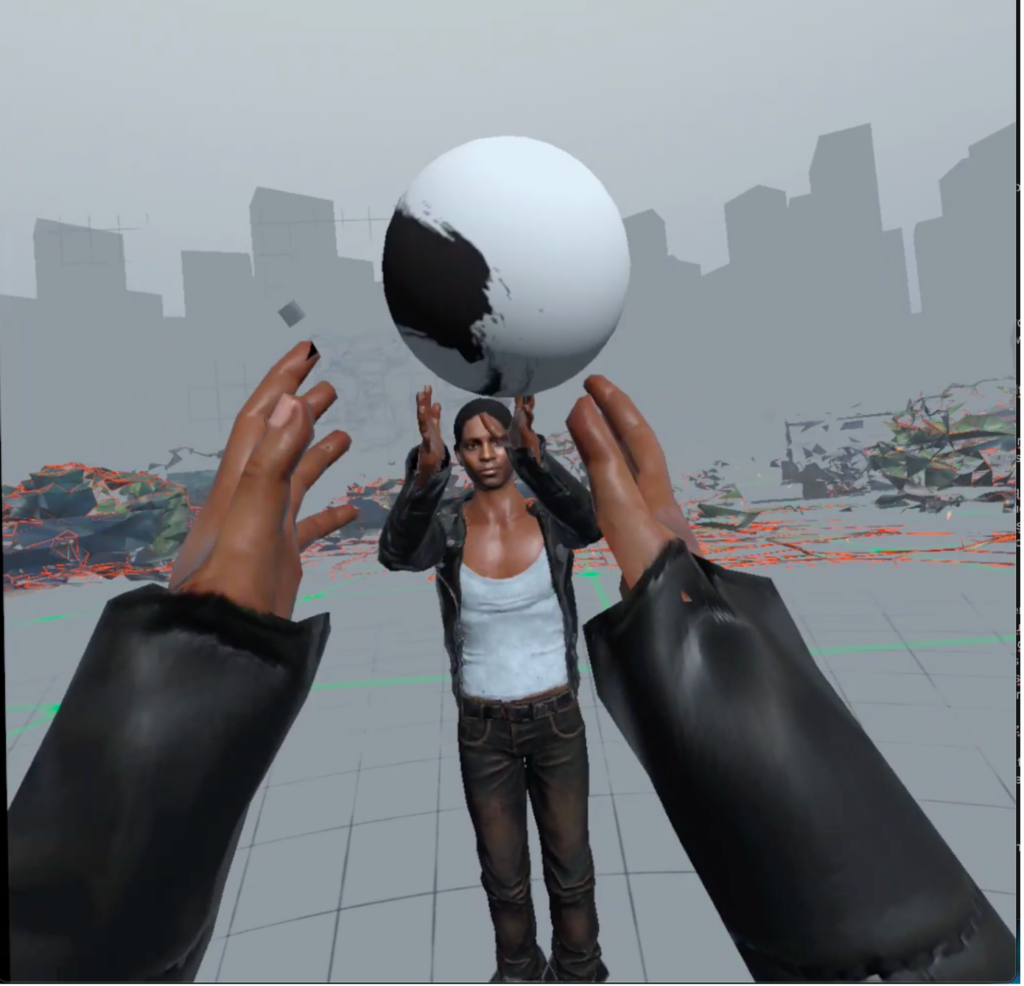
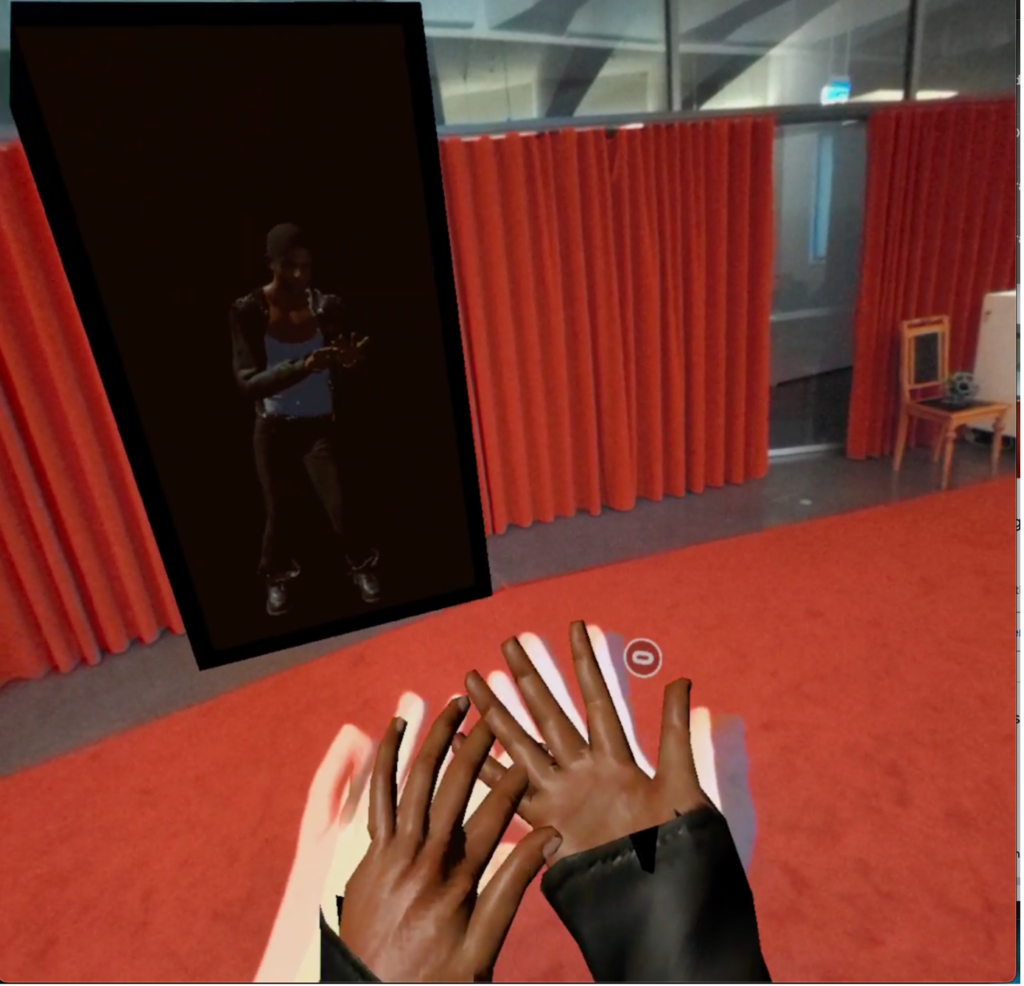
The head-mounted display-based (HMD) research project Ndinguwe at Dortmund University of Applied Sciences and Arts explores the interplay of cognition and narration in virtual space. The focus is on three main aspects: the self-representation of the recipient as an avatar in virtual space, the relationship of virtual objects to haptic feedback, and the connection of the virtual environment with the real environment in so-called mixed realities. These parameters are examined in relation to narration, or storytelling. The word Ndinguwe is borrowed from the Xhosa language and means “I am you”. It is about the transmission of self-perceptions within discriminated people, which can be simplified to the factors of gender, age, ethnicity, and physical condition. The interior view of these forms of existence are represented within the VR installation and can be critically reflected upon. For example, there is the question of whether an avatar as POC is a form of blackfacing or cultural appropriation, or a bridge for empathy? Where may and should boundaries be softened and where must they be clearly drawn? How does it feel to have no arm or to be of a different gender? These and other states of self-awareness are simulated in Ndinguwe, thus enabling experiences that cannot yet be generated in any other medium. In addition, the reference to haptic objects, such as a ball and a chair, is established, which are playfully used to become objects of action. In the application, no interfaces are used remotely, but the interactions culminate with the bodily behavior that the recipients know from their everyday life. This enables an intuitive hybridization of virtuality and reality and cognitively enters into a connection that is difficult to separate. The potential of this way of working lies in this pattern.
The project was developed in the StoryLab kiU of the Fachhoschule Dortmund in the Dortmunder U in collaboration with the PhD program in experimental computer science of the KHM Cologne. The project is an experiment, which besides its entertainment value is also scientifically evaluated. Thus it finds its first exhibition at the Places Festival in Gelsenkirchen, where the mode of action is discussed in a professional environment.
https://places.lineupr.com/places-2023/page/ndinguwe-ich-bin-du
